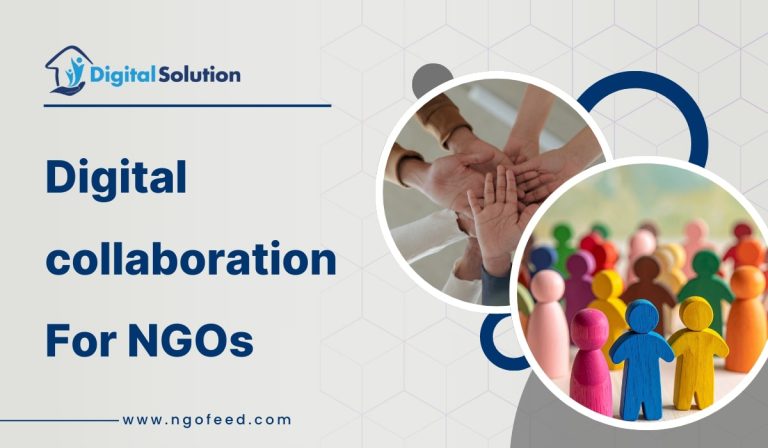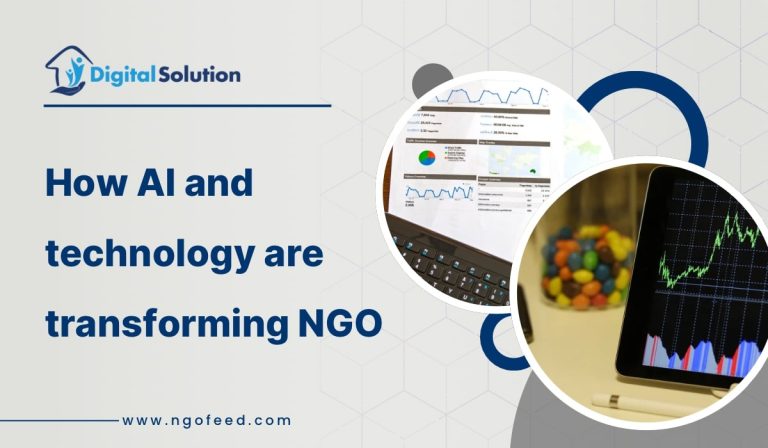In today’s rapidly changing world, the debate between social enterprises and NGOs has become one of the most important discussions in the development sector. Both aim to address social, economic, and environmental challenges, yet they differ significantly in structure, funding, sustainability, and long-term impact. Understanding the difference between a social enterprise and an NGO helps determine which model creates more sustainable change in 2025 and beyond.
This deeper comparison of the social enterprise vs NGO model helps readers understand which approach ensures long-term sustainability, financial independence, measurable social outcomes, and stronger community impact in 2025 and the future.
Table of Contents
Understanding NGOs (Non-Governmental Organizations)
A Non-Governmental Organization (NGO) is a non-profit entity that operates independently of government control. NGOs focus on public welfare and community development. They work in areas such as education, health, poverty eradication, environment protection, women empowerment, and human rights. These organizations rely mainly on external funding through government grants, private donations, and international aid.
The primary goal of NGOs is to serve people rather than generate profit. They build strong community relationships, implement welfare programs, and advocate for policy change. Examples include CRY, Smile Foundation, and HelpAge India, which have made remarkable contributions to improving lives through social initiatives and humanitarian aid.
However, the biggest challenge NGOs face is financial dependency. Their sustainability often depends on donor support, which can fluctuate based on economic and political factors. Despite their deep community engagement, limited funding can restrict long-term project continuity.
Understanding Social Enterprises
A Social Enterprise is a business model that combines profit-making with social impact. Unlike NGOs, social enterprises generate their own revenue by selling goods or services, and reinvest their profits to address social or environmental issues. This makes them financially sustainable and independent from external donors.
Social enterprises are founded on the principle of “doing well by doing good.” They focus on solving societal problems through entrepreneurship, innovation, and market-based solutions. For instance, companies like Amul, Barefoot College, and Rang De are known for empowering rural communities while operating sustainably in the market.
The strength of social enterprises lies in their ability to create measurable impact while maintaining financial stability. They encourage innovation, attract investors, and promote responsible consumption. However, they may face challenges in balancing profit with purpose, especially in sectors where revenue generation is difficult.
Key Differences Between NGOs and Social Enterprises
The fundamental difference between NGOs and social enterprises lies in their financial model and approach to sustainability. NGOs rely heavily on external funding sources such as donations and grants, while social enterprises use self-generated income through products or services to sustain their operations.
NGOs focus primarily on welfare and humanitarian causes, often working in underserved or vulnerable communities. Social enterprises, on the other hand, address similar issues but through business-oriented solutions. While NGOs are mission-driven and depend on altruism, social enterprises follow a hybrid model of mission and market, making them more adaptable in the long term.
Funding Options for NGOs and Social Enterprises
Funding is the backbone of both models, yet the sources differ significantly. NGOs usually secure funds through government schemes, international agencies, philanthropic foundations, and crowdfunding campaigns. Their income depends on donor trust and the visibility of their cause.
Social enterprises, in contrast, attract impact investors, venture capitalists, CSR (Corporate Social Responsibility) partnerships, and social impact funds. They may also receive seed funding or incubation support from organizations promoting sustainable entrepreneurship. The ability to generate consistent revenue gives social enterprises a competitive edge in achieving long-term growth.
Revenue Generation: Social Enterprises vs NGOs
Social enterprises operate with the intent to generate revenue while fulfilling a social mission. For example, they might sell eco-friendly products, provide skill development training, or offer affordable services to underprivileged communities. The profits earned are reinvested to scale impact rather than distributed to shareholders.
NGOs, on the other hand, do not engage in commercial activities. Their operations depend on grants and donations, making them vulnerable to funding cuts. While NGOs excel at delivering immediate community impact and humanitarian support, their dependency on donors can limit scalability.
Social Enterprises in India: Alternatives to NGOs
In India, several social enterprises have emerged as strong alternatives to traditional NGOs. Organizations such as SELCO Foundation, Goonj, Rang De, and Barefoot College demonstrate how business-led social models can achieve measurable impact. These enterprises work in renewable energy, rural development, microfinance, and education — sectors where sustainable models are essential.
These social ventures combine innovation, entrepreneurship, and community engagement, proving that social enterprises can be both financially viable and socially impactful. Their ability to sustain operations without donor dependency makes them a reliable model for long-term community development.
Which Model Has Greater Impact?
Both NGOs and social enterprises play essential roles in social transformation. NGOs are crucial for emergency relief, human rights advocacy, and grassroots mobilization. They create awareness and bring communities together for social causes. However, their dependency on donations often limits their ability to sustain projects independently.
Social enterprises, on the other hand, build scalable, self-sustaining solutions. They empower individuals through employment, innovation, and entrepreneurship while maintaining financial independence. In the modern development ecosystem, social enterprises often achieve greater long-term impact due to their ability to grow sustainably and adapt to market demands.
Conclusion
The future of social impact depends on a balanced collaboration between NGOs and social enterprises. NGOs continue to play a crucial role by supporting vulnerable communities, ensuring rights-based development, and addressing issues that cannot be solved through business models alone. They fill critical humanitarian gaps, especially during crises.
Social enterprises, on the other hand, offer scalable, self-sustaining solutions that reduce long-term donor dependency. Their ability to innovate, generate revenue, and adapt to changing market needs makes them a powerful alternative model in 2025 and beyond. They empower communities through employment, entrepreneurship, and technology-driven solutions.
When evaluating the social enterprise vs NGO model, it becomes clear that both have unique strengths. The most effective approach for the future is a hybrid ecosystem where NGOs drive welfare-based missions and social enterprises ensure financial sustainability. Together, they can create long-lasting, measurable, and inclusive social development.
Frequently Asked Questions (FAQs)
1.Can I partner with a social enterprise instead of an NGO for community projects?
Yes, you can absolutely partner with a social enterprise for community development projects. Unlike NGOs, social enterprises combine social impact with business innovation, creating sustainable solutions for long-term community empowerment. Partnering with a social enterprise allows you to support social entrepreneurship, capacity building, and impact-driven growth, while ensuring measurable and financially sustainable outcomes. Many organizations and governments now collaborate with social enterprises for CSR projects, skill development, women empowerment, and rural livelihood programs.
2. What funding options are available for social enterprises versus NGOs?
Social enterprises and NGOs differ in their funding models:
Social enterprise rely on revenue generation, impact investments, venture capital, crowdfunding, and CSR partnerships. They often attract social impact investors who seek both financial returns and measurable social outcomes.
NGOs, on the other hand, depend primarily on grants, donations, government aid, and philanthropic funding. They are non-profit entities that reinvest all resources into community initiatives.
In summary, social enterprises focus on self-sustainability, while NGOs depend on donor-based support for social causes.
3. What is the difference between a social enterprise and an NGO?
The main difference lies in purpose and financial structure:
- A social enterprise is a mission-driven business that addresses social or environmental problems through market-based strategies. It earns revenue by selling goods or services, while also driving social innovation and community change.
- An NGO (Non-Governmental Organization) is a non-profit organization that operates mainly through donations, grants, or government support to promote social welfare without seeking profit. In short, a social enterprise merges profit with purpose, whereas an NGO focuses solely on social impact.
4. Which social enterprises in India are considered alternatives to NGOs?
Several social enterprises in India have become powerful alternatives to traditional NGOs due to their sustainable business models and impact-driven approaches. Examples include:
- SELCO India – promoting sustainable energy solutions for rural communities.
- Goonj – bridging urban waste with rural resource needs through social innovation.
- Barefoot College – empowering rural women through education and solar entrepreneurship.
- Rang De – offering micro-loans for financial inclusion.
- Amul Cooperative Model – supporting rural dairy farmers through community-based enterprise.
These Indian social enterprises demonstrate that business innovation can create scalable, long-lasting social impact beyond the limitations of donation-driven NGOs.
5. How do social enterprises generate revenue compared to NGOs?
Social enterprises generate revenue through sales of products or services, subscription models, franchising, or impact-driven business operations. Their goal is to achieve financial sustainability while solving social or environmental challenges. For instance, they may sell eco-friendly goods, provide affordable healthcare, or offer renewable energy solutions.
In contrast, NGOs do not earn profit; they rely on external funding, charitable donations, and grants. While NGOs focus on free service delivery, social enterprises create market-based solutions that empower communities economically.









